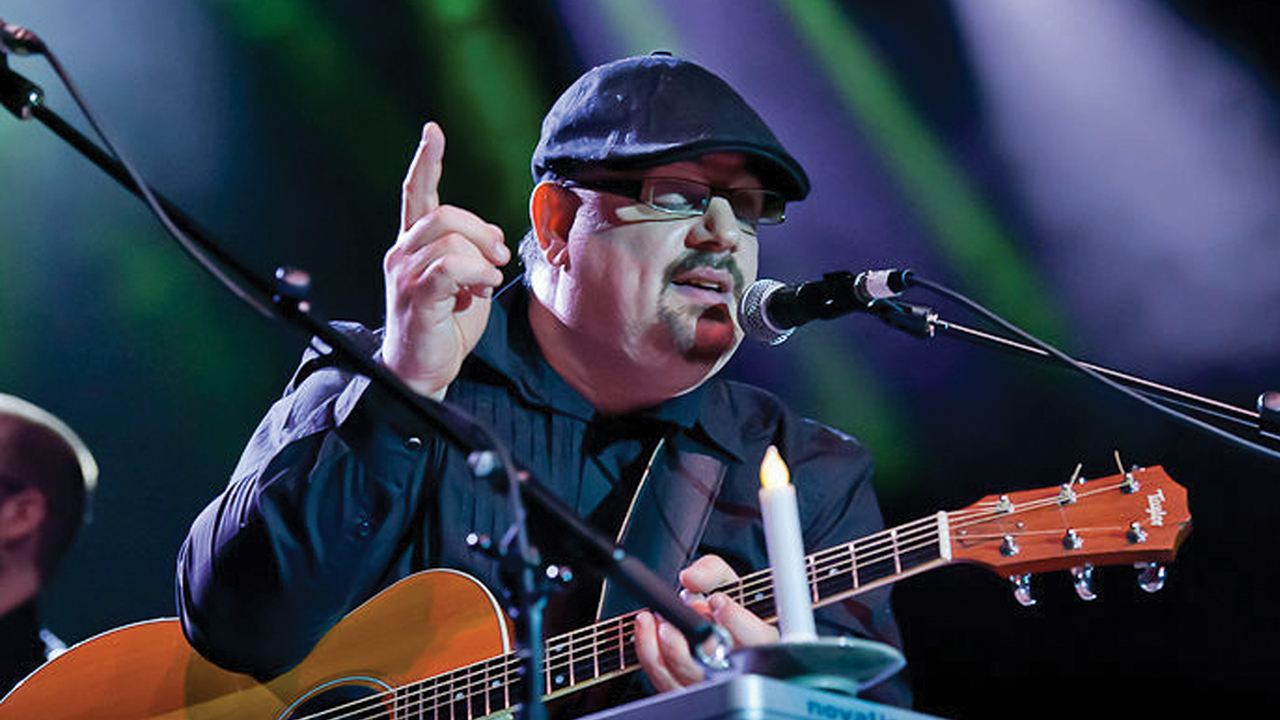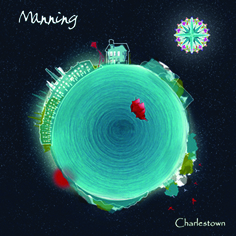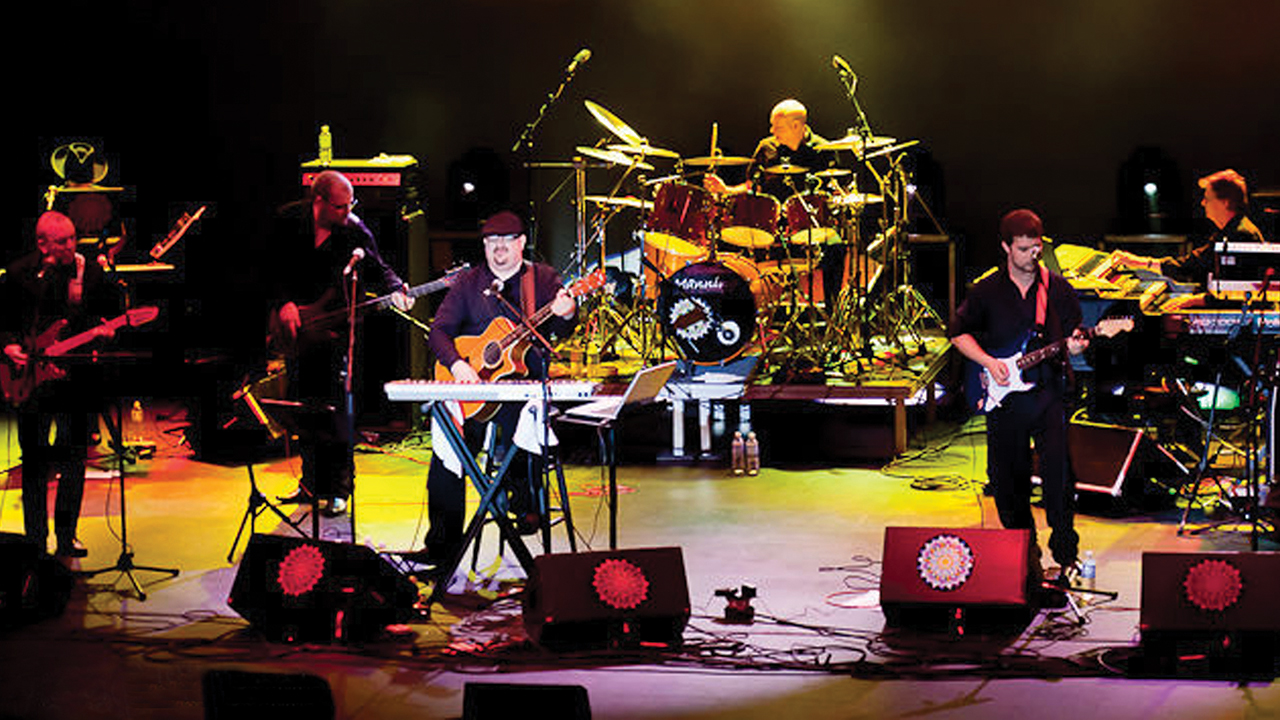The story of Guy Manning's Charlestown
Back in 2010 Prog sat down with multi-instrumentalist Guy Manning to talk about his 11th solo album Charlestown

Nowadays, multi-instrumentalist Guy Manning is far more likely to say he’s part of a band rather than simply hiring musicians to play on his solo albums under the Manning banner.
“I used to say it was me,“ he tells Prog from his home in Leeds, “I did everything on my album then I’d get musicians to do bits I couldn’t do, but this line-up has been together a little while now and I’ve used them a lot as a band on this album. So it has become a lot easier; if we stick together we’ll probably do the next album.”
Famous last words, as shortly after recording eleventh album Charlestown, released last month on the Festival Music label, drummer Dave Albone retired to be replaced recently by John Kennard.

Manning opened his account back in 1999 with Tall Stories For Small Children, and if you do the maths, this makes Guy one of the more prolific providers of progressive rock music in recent times. Especially when you also consider his involvement with The Tangent during the last eight years or so (he left the band this year incidentally) and association with Parallel Or 90 Degrees before that. Both bands saw Manning pair up with Andy Tillison, himself a regular guest over the years on Manning’s solo work. Describing his latest release as “more challenging”, the self-confessed storyteller can now focus solely on Manning, taking the music and arrangements to new and differing levels.
“It’s challenging because it’s quite involved and completely different to last year’s album,” he says referring to the appropriately named Number 10. “Its got
a long piece [the 35-minute opening title track] on it for a start. It may not be Transatlantic’s The Whirlwind album but what is? But it has got a lot of light and shade, the previous album had a well-balanced feel I thought, but this has a huge song to start with and the rest is like a supporting piece. There’s a short, quiet ballad right afterwards to offset the sea-faring epic.”
He expands to describe how the lyrics to the aforementioned opener came about, “When I was writing the music, I didn’t know what to write lyrically. I don’t live in a cardboard box on the streets of London, so I can’t really do social comment. I’m not someone like Phil Collins, feeling sorry for all the bag ladies in London and then not giving them any money. I’m a middle-class fella, getting on in years and there’s very little to write about now apart from my own death! So finding inspiration is always very difficult. I went on holiday to Cornwall and one particularly dreary day decided to go and see a working port where the tall ships were, a place called Charlestown. I was on a ship, reading about it and thought it’d be an interesting story about the voyage of this particular ship going off to Land’s End, to Bristol and these things happen to it. Of course it’s a narrative song. Once I’ve got an idea, I’m off, as it were. I like to write about strange characters and tales.”
The new album is certainly an impressive piece of musical score, from the opening bars of the aforementioned song, it’s sufficient to say that Manning crams in as many progressive elements as possible throughout, and as well as something for the prog purists to savour, those new to the scene can return many times too and dissect at their leisure.
Sign up below to get the latest from Prog, plus exclusive special offers, direct to your inbox!
“I just write what I write and it just turns out as it does,” he concurs. “There’s no forward-thinking game plan. I like more quirky bands, and try to listen to bands that are more interesting. There are still a lot of bands out there sounding like Genesis, that’s another reason why this new album is more challenging. An album I hope you do take time and listen to and get into. Those albums you love on first listen invariably don’t get played much again. The albums I go back to time and time again are albums when I first listen to, I’m thinking ‘what the hell was that all about?’ And then next time I don’t quite understand it and need to play it again and again and eventually love it for life. The new album is a bit like that. If you don’t quite get it first time, go back to it.”

On comparability, some have written of Manning’s similarity to Jethro Tull and of
a ‘unique’ vocal style.
“That means you either love it or hate it,” he says of his voice. “Granted, I’m not the greatest of lead vocalists. I’ve tried other singers but they don’t put the songs across in the same way, so I’d rather sing them badly and how I want them portrayed. Don’t buy it and then complain and moan about my singing afterwards, that’s not fair.” Like many artists, his websites contain a number of song samples, so he has a point. He continues, “I have a massive amount of music in my head, but I think I have my own little style, it’s sort of me now. Yeah, maybe it sounds a little Tull in places mainly because I sing like Ian Anderson apparently and have a flute player but you can’t always win.”
You could say that 53-year old Guy is your typical Yorkshire man, where black is black and white is most definitely white, at times some might relate to this straight-talking, no-nonsense delivery as both refreshingly honest or simply a grumpy old man (“the 80s bored me to death” he says of that decade’s music scene or his recent annoyance at “the classic AOR stadium rock bands who pretend its prog because they have some moods in their music”, for example).
On playing live, his views are equally candid.
“We’d like to do more live dates, but I can’t be arsed packing the van! It’d be different if we were a huge band with roadies who could do everything for you, but the reality is that I’m packing up a van at the back of the Kingston Peel at 2am. At my age, I shouldn’t be doing that. That’s why the albums, to me, are far more satisfying as I can spend a lot of time on them and not have to reproduce it time and time again.”
To be fair, with the band swollen to an eight-piece, it has its financial restraints.
But when they do take to the road, Guy admits that it will allow the songs to breathe in a more ‘adventurous’ way.
“Don’t get me wrong I do like playing live,” he admits, “as I get to play to people but it’s a lot of hard work for an hour and a half. At the end of the day, I’m just a guy writing songs in Leeds basically. I like writing songs and I like people to listen to them and the fact there are actually people buying the music is even better. But you’re never going to please everybody. Was it Joni Mitchell who once said [to paraphrase] nobody ever said to Van Gogh to paint one of his pictures again.”
The picture in question was entitled Starry Night which could loosely be representative of Manning’s latest offering: contrasting and invigorating. But above all, something you will no doubt return to over time and appreciate.
This article originally appeared in issue 13 of Prog Magazine.
